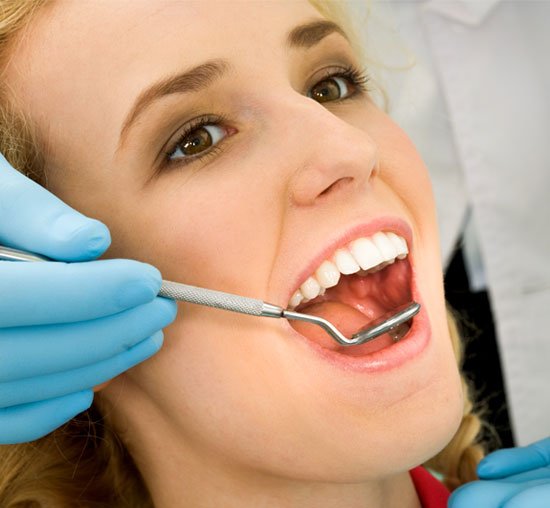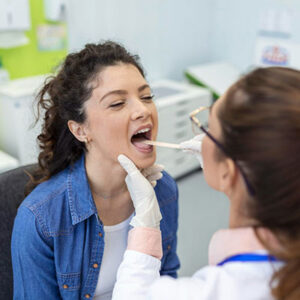Saliva is a transparent liquid that is produced by various glands in our mouth. When a person thoroughly chews food, then it produces saliva. The enzymes present in saliva aid in the digestion of food strengthens teeth, moistens food to make it easier to swallow, cleans the mouth and keeps it comfortable and moist.
In What Ways Does Saliva Protect Our Body?
Saliva moistens the mouth and lubricates the food as it is chewed and swallowed. It helps in neutralizing harmful acids and killing germs in the mouth. In this way, it defends against issues like bad breath, infections, tooth decay, cavities, periodontal and gum disease, enamel degeneration, and increases the rate at which a wound is healed.
What To Do If There is Excess Saliva In The Mouth?
People who produce more amount of saliva in their mouth suffers from a disorder called Hypersalivation. Excessive secretion of saliva can lead to discomfort during talking and eating. It can make one susceptible to skin infections and chapped lips.
Depending on the factors that cause it, hypersalivation can be intermittent or constant. It can be severe or chronic. Whatever be the cause, such a state of drooling results in diminished self-esteem and social anxiety in a person. This makes it very important to treat this condition at the earliest.
To treat the issue, a medical health practitioner can evaluate its severity, the condition of the mouth, nasal passages, and neurological and emotional state of a person. He will also enquire about any existing or past medical history of the patient. Learning about this information will help him arrive at the root cause of the problem. Once it is identified, necessary preventive measures are taken. The treatment will include specific kinds of therapies, medicines, and home remedies. Surgery can also be needed in extreme cases.
The suggested treatment for Hypersalivation includes:
- Behavioral speech and modification therapy
- Medication to lessen saliva production
- Home remedies
- By staying you can decrease saliva production to a considerable extent.
- Daily brushing of teeth and rinsing with mouthwash is a temporary solution to dry out
the mouth.
What To Do If There Is Little Saliva In The Mouth?
Dry mouth is a condition when your salivary glands fail to produce normal levels of saliva in the mouth. Such a scarce amount of saliva is inadequate to keep the mouth moisturized and wet. One of the major reasons to it could be improper functioning of salivary glands in the mouth. Other causes include:
- Stress
- Cancer therapy (chemotherapy or radiation)
- Certain medications
- Autoimmune disorders
- Smoking
Some of the best ways to treat this condition are:
1. Chew chewing gum
Chewing helps in stimulating the tissues of salivary glands. This, in turn, produces more saliva in the mouth. The gum needs to be sugar-free as the presence of sugar can develop cavities in teeth.
2. Eat fiber-rich foods
Raw and crunchy vegetables and fibrous fruits such as carrots, celery, and apples are advised to be eaten. These foods are mildly abrasive, that helps in sweeping plaque and bacteria from the teeth.
3. Watch the intake of caffeine, tobacco, and alcohol
Alcohol, tobacco, and caffeine are all responsible for causing dry mouth. So, it is advised to limit their intake. Quit consuming tobacco in all its forms such as pipes, cigars, cigarettes, pipes, and powder. Stay away from vaping as it also contributes towards drying effect.
4. Lubricate the membranes
A room humidifier can help you. A little change in breathing style can also give you significant relief. Try breathing through the nose than your mouth. You will feel the difference!
5. Avoid drugs that add to dryness in the mouth
If you are on medication that includes decongestants and antihistamines, then it can be the reason for your dry mouth. Talking to your medical health practitioner would be the right course of action.
6. Floss and rinse using mouthwash
Daily brushing, flossing and brushing would keep the problem of the dry mouth under control. It will also prevent you from tooth decay. Choose non-alcohol-based mouthwash over the alcohol ones as the latter can cause dryness in the mouth.
7. Consume medicines that activate salivary glands
It is always recommended to refer to your doctor before you consume any new medicine.
How to Keep Salivary Glands Healthy?
Salivary glands are small-sized tube-like ducts that are present in the inner linings of lips, mouth, and cheeks. Their main role is to produce saliva and keep the mouth moist. The condition of these glands impacts its functioning. An overactive gland results in excessive secretion of saliva in the mouth whereas an under-performing gland would fail to secrete adequate quantities of saliva that would ultimately lead to dry mouth.
The level of secretion of saliva plays an important role in promoting oral health, as well as overall health. Thus, it is necessary to understand the underlying reasons that can cause an imbalance in saliva production and the ways to keep glands productive and healthy.
To keep your salivary glands productive and in the best health, it is important to follow the below tips.
- Quit smoking, and tobacco products
- Limit alcohol consumption
- Stay away from recreational drugs
- Closely supervise health conditions, like diabetes.
- Notify the doctor if any prescribed medication causes dryness in your mouth.
- Practice good oral hygiene to lessen bacteria in the mouth.
- Check doctor for swollen salivary glands or any signs of infection in the mouth.
- Stay hydrated
What is Sticky Saliva?
When the salivary glands fail to form enough saliva, then it causes dryness in the mouth. One of the signs of this disorder is thick saliva or sticky saliva. Such saliva is the result of inadequate moisture in the mouth that can make its consistency thin.
Home Remedies to Treat Sticky Saliva
- Drink eight to ten glasses of water to thin saliva and prevent dehydration.
- Consume warm liquids as it dispels sticky saliva and helps in swallowing of food.
- Rinse with diluted baking soda prior and post eating.
- Reduce consumption of thick, and sticky foods, like peanut butter, almond butter, etc. Include foods in your diet that have plenty of fiber, water and moisture content in it.
- Lean over a steaming hot water bowl with a towel covering your head. It will help in loosening sticky saliva.
- Avoid cigarettes, caffeinated and alcoholic drinks, that can add to mouth dryness.
Frequently Asked Questions About Saliva and Oral Health
1. What is saliva made up of?
Around 98% of saliva is water. Remaining two percentage of it is made up of electrolytes, antibacterial compounds, mucus, electrolytes: 2–21 mmol/L and different enzymes.
2. What are salivary glands?
Salivary glands are tiny tubes like ducts that carry saliva from the gland into the mouth. There are about six main salivary glands located inside the mouth region that continuously produce saliva. These glands sit inside cheeks, below your mouth, and next to your front teeth.
The parotid glands produce saliva in the mouth above the upper molar region, whereas the submandibular glands make use of ducts in the jaw and are present below the tongue besides the sublingual glands and the lower molars.
3. What is the normal range of saliva in a human being?
An average human being produces around 0.5 liters to 1.5 liters of saliva daily. This is considered to be the normal range. Any amount higher than this limit can come under the category of hypersalivation and lower than this limit will result in dry mouth condition.
4. What causes the rate of saliva production to increase or decrease?
Normally, the rate of saliva production reduces to 0.1 ml/min at the time of sleep. This rate increases to around 4, 0-5, 0 ml/min at the time of chewing, eating, and performing any other stimulating activity.
5. How does saliva benefit your body?
The production of saliva provides a beneficial impact on the body. From assisting in eating and swallowing food, to healing wounds, saliva has a big role to play in the body. Saliva contains enzymes that help the inefficient elimination of germs from the mouth. A few other functions carried out by it are:
- Lubricates food
- Acts as a solvent
- Cleanses mouth
- Aids in Digestive function
- Aids in Excretory function
- Helps in speech
- Regulates water levels in the body
- Buffering with neutralized acids
6. What are the signs of hypersalivation?
People who have hyper-salivation exhibits symptoms such as drooling, excessive swallowing, spitting, chapped lips, bad breath, speech disturbance, pneumonia, dehydration, and lack of sense of taste.
Besides it, they may also notice that the skin around the mouth regions starts to soften and damage. There are also chances of getting skin infection in the area surrounding the mouth region.
7. What are the reasons that cause sticky saliva?
Sticky saliva is characterized by dry mouth that produces thick saliva. It can happen due to a variety of reasons. A few of them being the stuffy nose, cancer treatment, radiation therapy, dehydration and impediments in salivary duct.
Conclusion
Saliva is intensely associated with bodily functions and maintaining the overall health of gums and teeth. Changes in its production can cause a wide range of body-wide and oral health problems. Though it is hard to control, but not untreatable. Besides good oral hygiene, it is important to explore all available management possibilities, as it is mostly a case of trial and error to arrive at the right solution. Getting the assistance of a specialized doctor will help you solve the problem safely and effectively.
Hope you have found our article informative. Please share it with your family and friends on social media. Also, if you have any queries and comments, do write to us. We will be happy to address them as soon as possible.


















